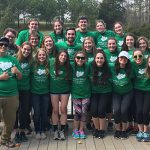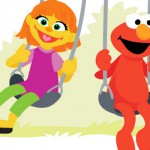
Posted on April 13, 2017
What does it mean to be an ally? That’s something I asked my fellow University of Delaware colleagues multiple times over spring break and something nearly 600 UD students all over the country have been thinking about. They and I are a part of an organization called University of Delaware alternative Breaks (UDaB).
UDaB is a student-run organization at UD that coordinates service-based learning experiences across the country that focus on social issues. Our 20 trips this spring break emphasized

Posted on July 15, 2016
It happened again: another visit to a doctor’s office where my answer to a questionnaire about my mental health ended up affecting, adversely, the way they viewed me, communicated with me, treated me.
I always dread the question at health practitioners’ offices about which medications I’m taking. For the past 20 years I’ve wanted to dodge answering that I am on medication for bipolar disorder because once I do, the tone of the visit changes dramatically. My husband happened

Posted on February 26, 2016
Recently a couple of friends suggested I should write about love since February is the month about love and matters of the heart. My first reaction was that I am no expert on love. I suggested that I would leave the discussion to Cupid and the cute trolls in the Disney movie Frozen, who are “the love experts.” Furthermore, since February is Heart Health Awareness month, the American Heart Association covers this subject with great tips.
The more I
This entry was posted in Education, Health and Wellness, inclusion, people with disabilities, Uncategorized and tagged American Heart Association, Anquan Bolden, Cupid, Disney, Frozen, Presidents Day, The Carter Center, Tim Tebow, Valentine's Day, Walter Payton Man of the Year award.

Posted on February 25, 2016
Question: How many times in the 15 debates for president have moderators specifically asked candidates about issues concerning disability?
a. 1 b. 5 c. 7 d. 11
If you answered b or c, thinking five or seven times sounds about right and should seem reasonable to the one-in-five people watching the debates who have a disability (and the more than 50 million Americans who live with a disability), you’re mistaken. The answer is “a” – one time. In September,
This entry was posted in accessibility, Americans with Disabilities Act, autism, Education, employment, Health and Wellness, inclusion, people with disabilities, public policy, Uncategorized and tagged Alzheimer's, autism, Ben Carson, Bernie Sanders, Convention on the Rights of Persons with Disabilities, Donald Trump, Hillary Clinton, Individuals with Disabilities Education Act, Jeb Bush, John Kasich, Marco Rubio, presidential debates, Social Security Disability Insurance Program, Ted Cruz, Tom Harkin.

Posted on December 23, 2015
Like millions of other children, I grew up watching Sesame Street for its colorfully entertaining characters. Looking back, I realize that these characters not only opened my eyes to the world of education at a critically young age, but helped me develop an extremely open mind toward diversity. I may no longer be part of its target demographic audience, but I can’t help but be captivated once again by Sesame Street and the introduction of its newest Muppet playmate,
This entry was posted in autism, Center for Disability Studies, developmental disabilities, diversity, Education, inclusion, The Arts, Uncategorized and tagged autism, Elmo, Julia, Sesame Street, The Amazing Song.






